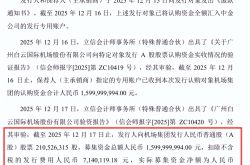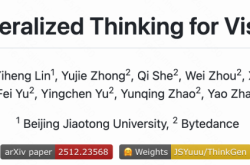"Delta Action", will it be Tencent's "trump card" in the global gaming arena?
![]() 09/27 2024
09/27 2024
![]() 617
617
Another strong dose in the shooting game sector from Tencent Games
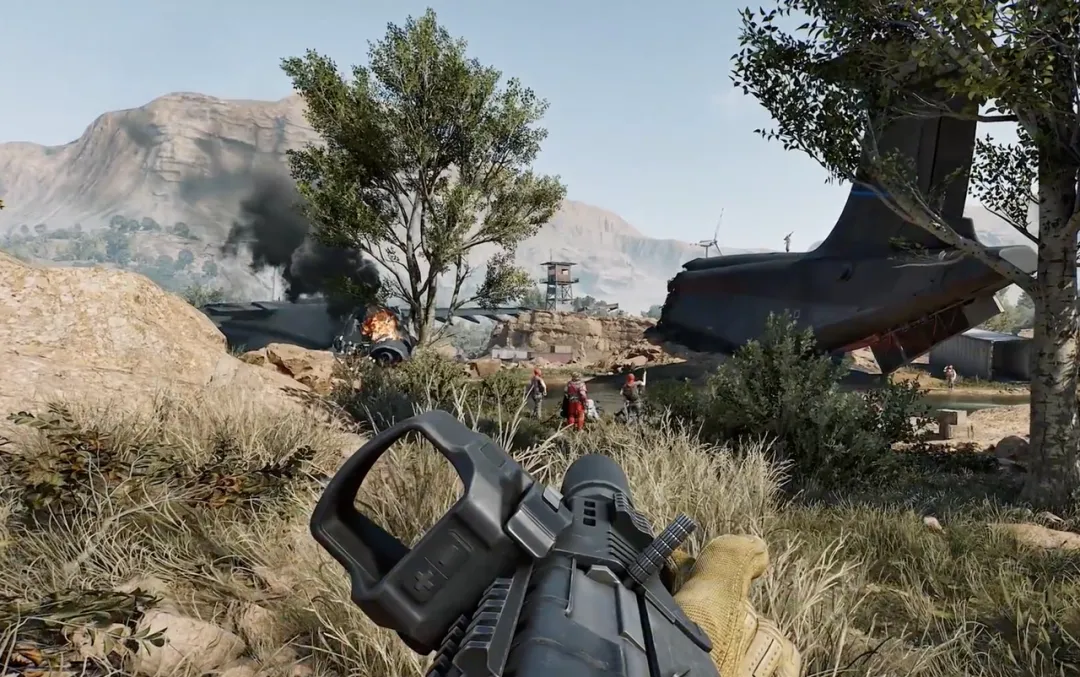
"Dear Daniel Wu fans, we're waiting for you!" This promotional video featuring Daniel Wu in bomb-proof gear has gone viral.
When asked about their gamer IDs, people often reply with something like "XX Daniel Wu", a humorous internet slang that has amused countless "Daniel Wu fans" online. However, the humor and vividness of the video are not enough to spark discussion. What really captured people's attention is that "Delta Action", the game that best showcases Tencent Games' technological prowess this year, launched on September 26th.
The game has surpassed 40 million pre-registrations across all platforms, making it Tencent's first multi-platform product. Investment banks such as Morgan Stanley, Kaiyuan Securities, and Cinda Securities have all predicted that the game will have an average daily active user base exceeding 5 million, marking another milestone in Tencent's international expansion. The launch of multiple mobile versions will further bolster its share of the gaming market.
Amidst the praise, the game's ratings on various platforms plummeted on its first day. How good is "Delta Action" really, and can it truly live up to Tencent's hopes of being a summer savior?
01 The good news is that it borrows well, but the bad news is that it also borrows flaws
"The gun mechanics of 'Call of Duty' don't fit 'Escape from Tarkov'. 'Battlefield 2042' took the cream but left the dregs, resulting in a poor gaming experience." This is the most incisive criticism of "Delta Action" online.
Currently, the game features three modes: "Warzone", "Full-Scale Battle", and "Black Hawk Down". Warzone is a survival gold rush mode, Full-Scale Battle is a large-scale multiplayer confrontation, and Black Hawk Down is a story mode.

The game's gunsmith system is rich in content, combining the unrestricted customization of 'Escape from Tarkov' with the gunsmith system of 'COD16'. Unfortunately, it fails to capture the essence of 'Battlefield', with slow aiming, reloading, and weapon-switching speeds.
For most firearms, "recoil control" is the most critical factor. Otherwise, the aiming reticle starts to wander even at a slight distance. Coupled with a lack of tuning in variables like bullet spread and lethal range, semi-automatic weapons are completely overshadowed by automatic rifles in large-scale battles. Undoubtedly, this weakness in the firearm design reveals significant problems.
Although the weapon upgrade system includes experience tokens, each accessory requires leveling up to level 50, and reaching the top 5 in a 30-minute game only grants 5 levels. This means it takes at least 2000 minutes to fully upgrade all 7 accessories for a single weapon, revealing a pay-to-play or grind-heavy design.
One of the biggest criticisms from players is the stiff and disjointed movements of the game characters. The awkward running stance, poor climbing mechanics, and limited looting range create a frustrating experience. Moreover, regardless of how you approach a fallen teammate, once you start rescuing them, you're forced into a stiff crouching animation, making you highly vulnerable to ambushes.
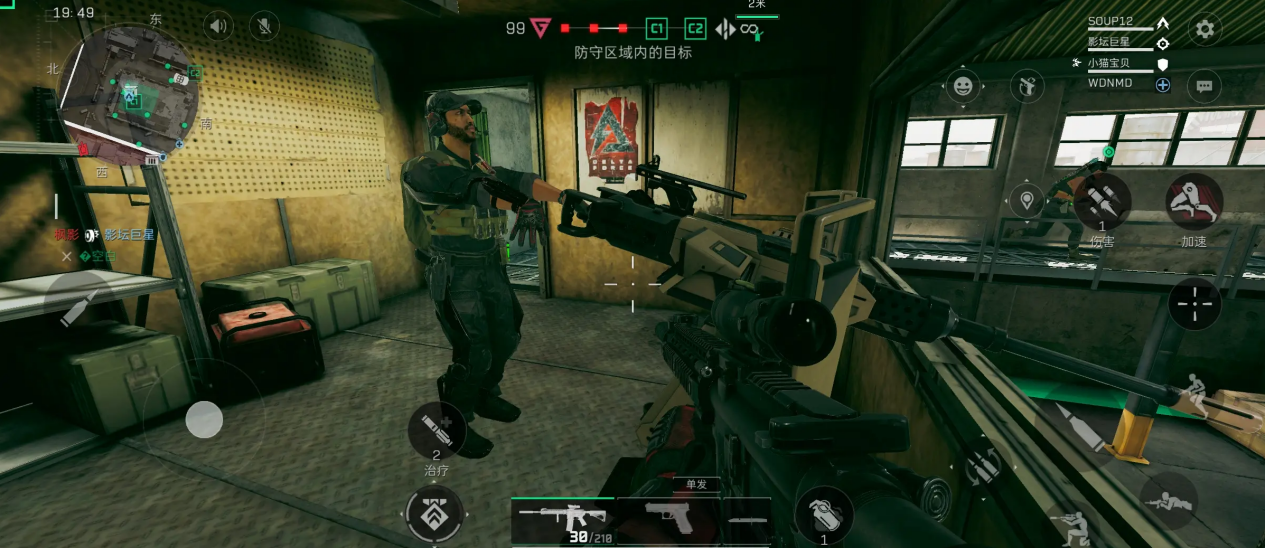
Furthermore, this so-called "tactical thrill ride" sets the player's natural health regeneration speed extremely slow. It takes almost 10 seconds from the last hit to trigger breathing-based health recovery, and rapid healing only restores half of your health. This mechanic is reminiscent of 'Battlefield V', but in that game, each class can carry at least one medkit to quickly restore health in high-pressure situations. In 'Delta Action', if a player is severely injured, they're likely left with only two options: waiting for a medic or dying.
Sometimes, characters suddenly crouch and can't immediately use items like healing potions or armor swaps. Similarly, when characters stand up from a prone position, they can't immediately sprint. These abrupt interruptions in gameplay severely hinder the player experience.
This translates to a confusing UI design where enemy and friendly units are poorly distinguished. Many times, players instinctively fire at allies, and medics struggle to find and heal their teammates due to the lack of clear health bars.
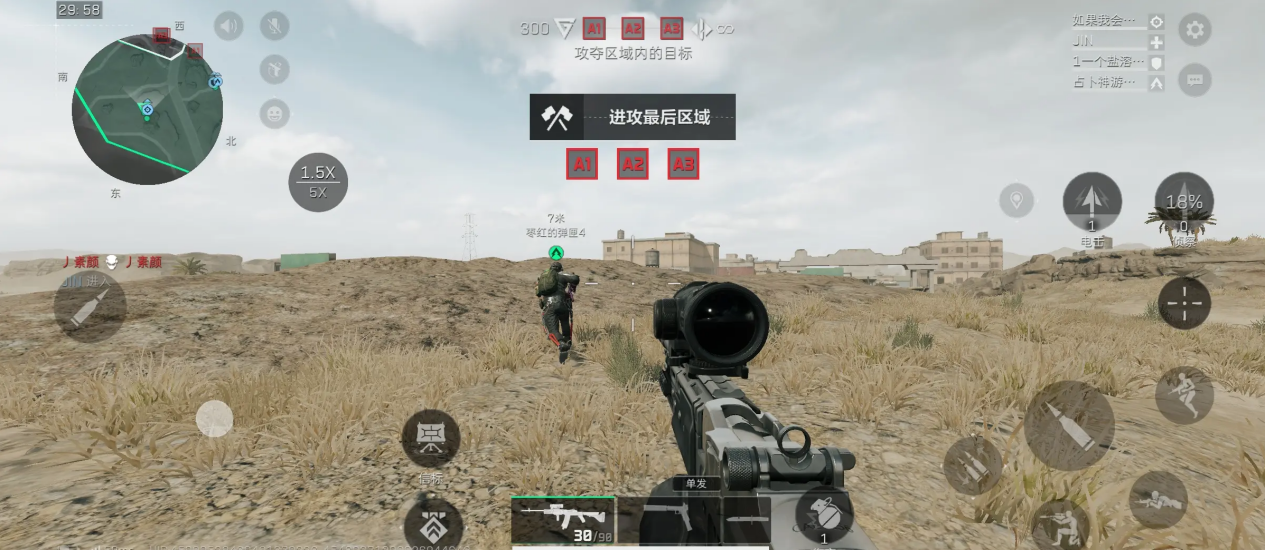
In stark contrast to its slow healing, 'Delta Action's' TTK (Time To Kill) and TTD (Time To Die) are severely imbalanced. It takes many shots to kill an enemy, while they can instantly take you down with just a few.
The primary reason is the significant damage falloff for weapons over distance. Assault rifles struggle to hit targets at medium to long ranges due to bullet spread, and sniper rifles lose most of their effectiveness beyond 500 meters. Additionally, accurately hitting targets consistently at medium to long ranges is challenging.
Overall, while 'Delta Action' may not yet rival the likes of 'Battlefield' and 'Call of Duty', it has pushed the boundaries of domestic shooting games. However, the development team must consider how to differentiate the needs of players across the three modes, balance the monetization aspects, and cater to the experience of multi-platform users.
02 Tencent Games' Quest for a Hit, Jumping Back and Forth in its Comfort Zone
At Tencent's annual meeting earlier this year, Tencent Interactive Entertainment Group President Ren Yuxin set the strategic direction, stating, "Competitive multiplayer games are the crown jewels of Tencent Games. We must defend our core business and not be swayed by popular MMOs or anime-style games."
This sums up Tencent's past failures in competition with NetEase and miHoYo: In February 2023, Tencent's Lightspeed & Quantum Studios spent years developing the post-apocalyptic SOC game 'Dawn Breaks: Life', which peaked shortly after its public beta but quickly declined. Within three months, its revenue trailed behind NetEase's 'LifeAfter', which has remained in the top 50 charts for six years despite its age.
In the anime genre, Tencent's lineup of games, including 'Alchemy Stars', 'Return to the Stars: 1999', and 'Project White Spire', also saw a concentrated release last year.
To attract players, 'Alchemy Stars' lowered the price of a single summon to just 2 yuan, landing it atop the iOS free charts on its launch day. However, its first-day revenue in China was just 1.8 million yuan, a fraction of miHoYo's 'Honkai: Star Rail'.
In contrast, 'Return to the Stars: 1999' faced ridicule for adopting a similar monetization model to 'Genshin Impact' upon its launch.
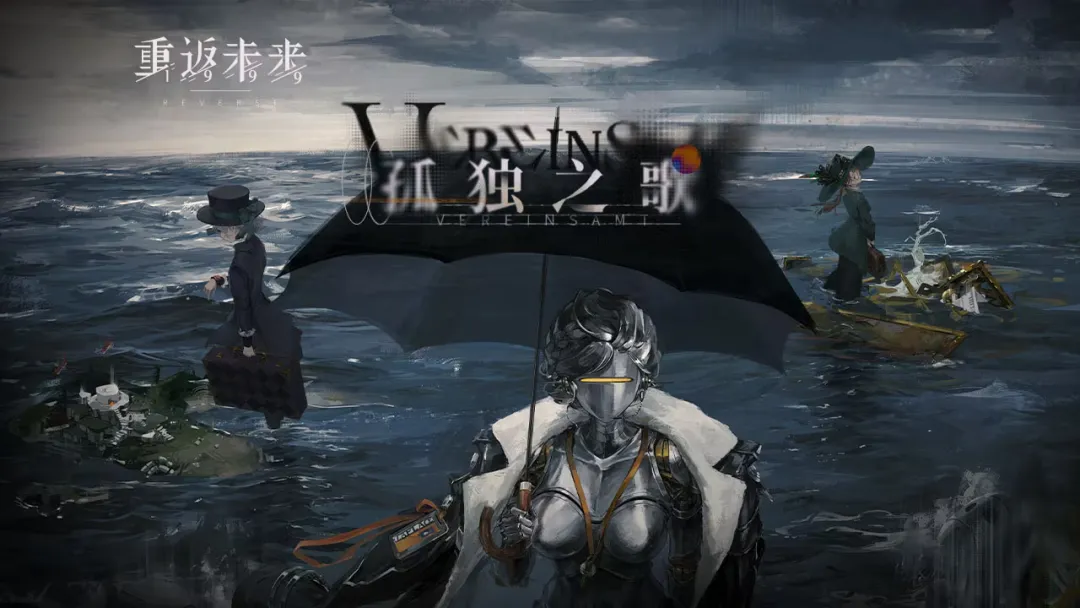
Yet, through multiple successful updates, the game achieved stable monthly revenue exceeding 100 million yuan in May 2024. While 'Return to the Stars: 1999' has made some progress in the anime game market, it's not enough to solidify Tencent's position in this fiercely competitive field. It wasn't until the release of 'Honkai: Star Rail' by Kuro Games in 2024 that miHoYo felt a glimmer of threat.
We can see that Tencent, known for its Imitation ability , has recently released games that have already been market-tested and emphasize strong competition and confrontation. This indicates a clear shift in Tencent Games' product layout and market strategy.
Tencent's rationale is understandable. For example, 'VALORANT' combines MOBA and CS:GO bomb defusal modes, helping Tencent reclaim the top spot in PC FPS games. When NetEase's 'Party Animals' surprised everyone with its sudden success, Tencent quietly released 'Stellar Dream' to slow down its rival and curb NetEase's another potential DAU hit.
Similarly, 'Dark Zone Breakout', a game similar to 'Escape from Tarkov', was niche due to its high difficulty and lengthy "loot and extract" gameplay. However, through live streams, esports events, and other channels, the game gradually found its audience, surpassing 100 million registered users by the end of 2023 and briefly topping the iOS top-grossing charts.
These games share another commonality: they're adapted from proven PC titles. 'Dungeon & Fighter Mobile' is a 1:1 recreation of the old PC version, 'Need for Speed: No Limits' has an official license from EA, and 'World Beyond: The Horizon' collaborates with the official 'Civilization' IP.
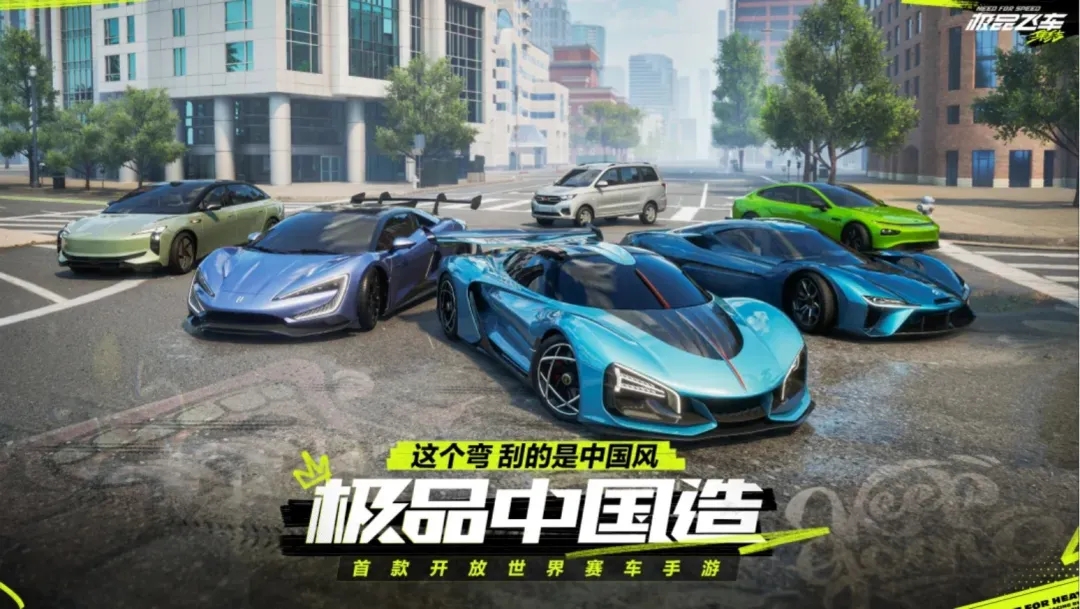
Converting popular IPs into mobile games is Tencent Games' winning formula and its "comfort zone" of necessity.
In terms of results, Tencent's strategic transformation has borne fruit. In 2023, Tencent's international game revenue grew by 14% to 53.2 billion yuan, accounting for 30% of its total game revenue. This growth momentum continued in 2024, with steady quarterly growth in the first half of the year.
However, Tencent's performance in the domestic market has been underwhelming. In 2023, its domestic game revenue grew by just 2%, with a 3% decline in the fourth quarter. This sluggish growth is primarily due to the stagnation of monetization for core games like 'Honor of Kings' and 'Game for Peace'. Without the surge of 'Dungeon & Fighter Mobile' in 2024, Tencent's overall domestic game performance would have been even more disappointing.
On one hand, there's a lack of innovation and new game launches. On the other hand, new games are cannibalizing user resources from older ones, intensifying market competition. Tencent Games cannot rely solely on its old hits for much longer.
'Nihon no Mura' revealed that over 70% of its players were trying an MMO for the first time, rather than traditional MOBA games. Compared to NetEase's consistent output of fresh IPs, Tencent's evergreen games face a dual challenge: attracting new users and retaining old ones.
Players have formed a certain stereotype about Tencent Games: they launch with a big bang but rely heavily on monetization adjustments, which can lead to negative public opinion, player churn, and a mismatch between game quality and user engagement.
The gaming industry is cyclical, and it may stagnate when innovation or new supply is insufficient. However, the arrival of a star product can quickly spark a rebound.
We can see that Tencent has let go of its obsessions. After a transformation period in 2022-2023, it has We have stocked up on a large number of heavyweight new products like 'CrossFireX', 'Honor of Kings: World', 'Rok', 'Ace Force 2', 'The Outcast', and 'Assassin's Creed Mirage'. Tencent's reign as the industry leader is unlikely to be a mere "glimmer of hope".





